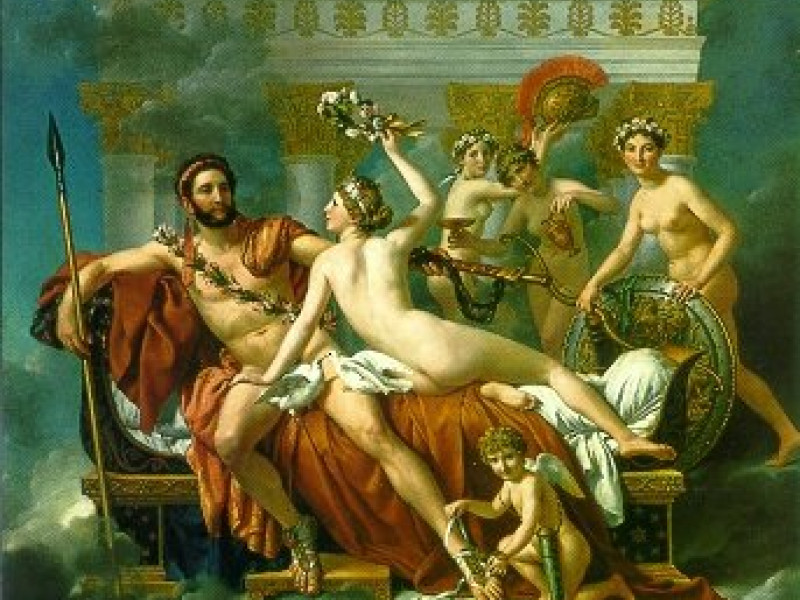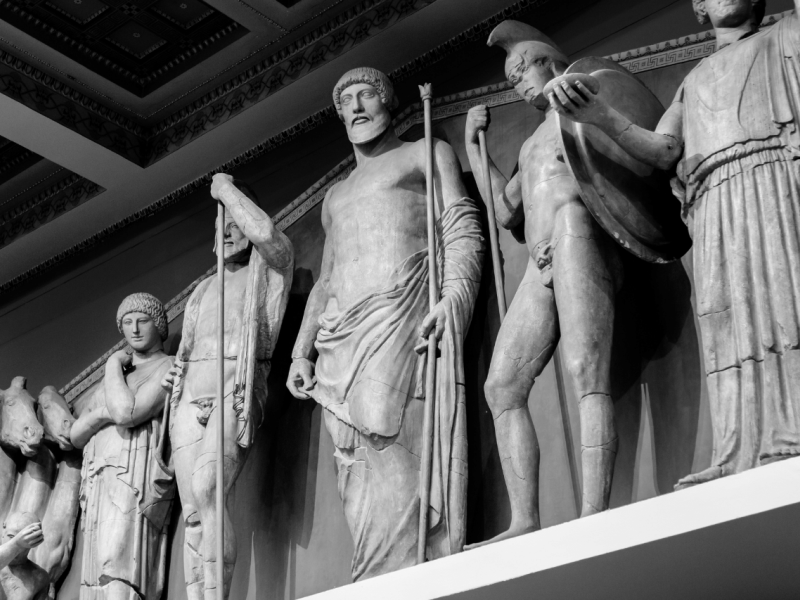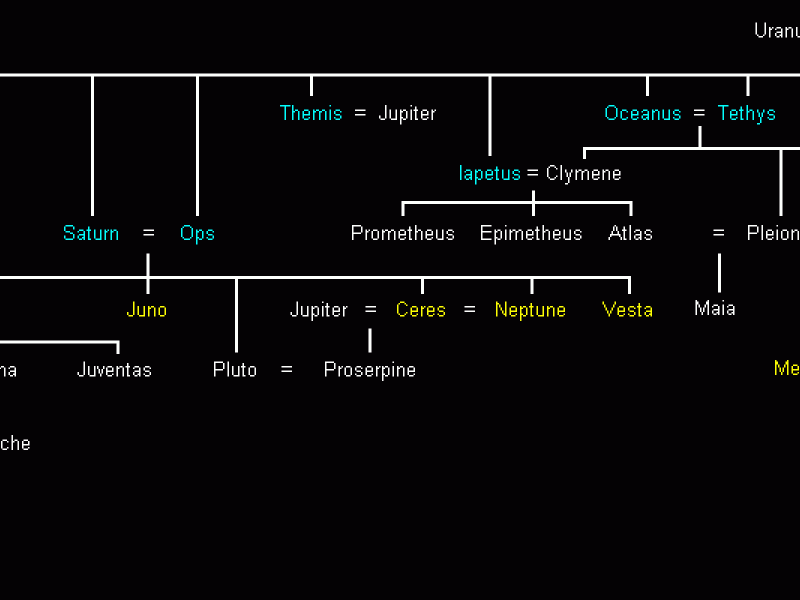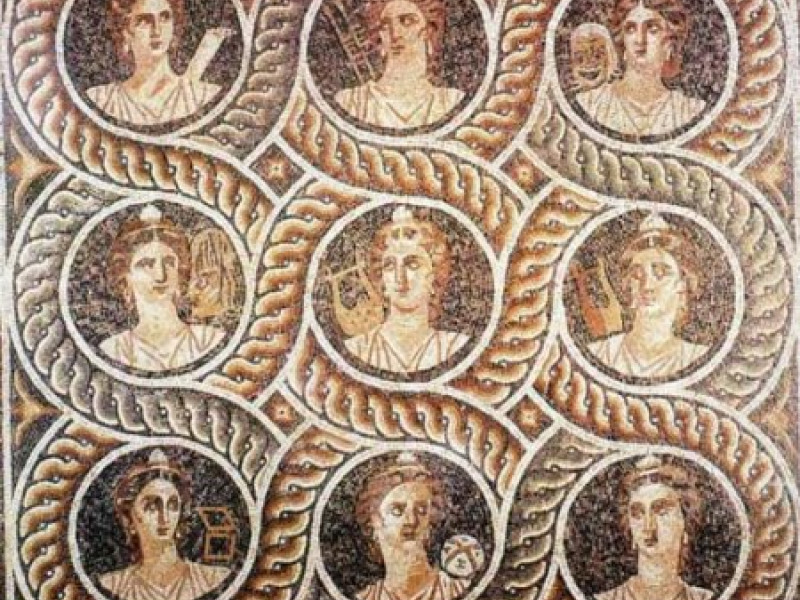Greek Pantheon
Below are several family trees showing the pantheon of the Greek gods. The first, very large genealogy shows the Greek deities based on Hesiod, Homer and many other writers, while the other trees are based on the more obscure Orphic myths.
Pantheon of Greek Deities


The main sources for this genealogy come from Hesiod, Homer and Apollodorus.
I have not given the names of all of the individual deities because they varied in numbers, like the Oceanids with 3000 sisters and the Nereids with 50 sisters. The Muses have nine sisters and Graces have three sisters. The Pleiades (daughters of Atlas and Pleione) have 7 seven sisters, but I've only listed the Pleiad Maia. I do have a full genealogy of the Pleiades, however.
Similarly, you will find that the Hundred-Handed, Cyclopes and the Gigantes can be found in another genealogy titled Giants and Monsters.
According to other sources (like Apollodorus), the goddess Dione was sometimes seen as a Titaness, but not in Hesiod's Theogony where she was an Oceanid (daughter of Oceanus). According to Homer and a few other writers, Dione was the mother of Aphrodite, but Hesiod said that Aphrodite was born from the blood of Uranus, mixing with the foamy sea. The female personification of the sea could be any one of a large number of sea goddesses (eg. Tethys, Doris, or even Dione).
If you are interested in the genealogy of the Roman deities, then see my new Roman Deities family tree.
Pantheon from Orphic Myths
The two family trees below are based on the myth of the Orphic Creation, which formed the foundation of the Orphic Mysteries. The two family trees are related to the Orphic myth of Protogonus-Zagreus-Dionysus.
The first family tree shows that the first god was born from the Cosmic Egg, and he was named Protogonus. Protogonus was identified with Eros of Hesiod's myths, and he was popularly known as Phanes, the god of light or the sun.
In some accounts, Persephone was the daughter of Zeus and his Titaness mother Rhea. However, in other accounts, Persephone's mother was Demeter. Whoever Persephone's mother was, Zeus ravished his own daughter (Persephone) and she became the mother of Dionysus or Zagreus as he was known to the Neoplatonist authors.
Dionysus or Zagreus was sometimes seen as the reincarnation of Protogonus/Phanes, whom Zeus had swallowed. Phanes was then reborn as the son of Zeus and Persephone.
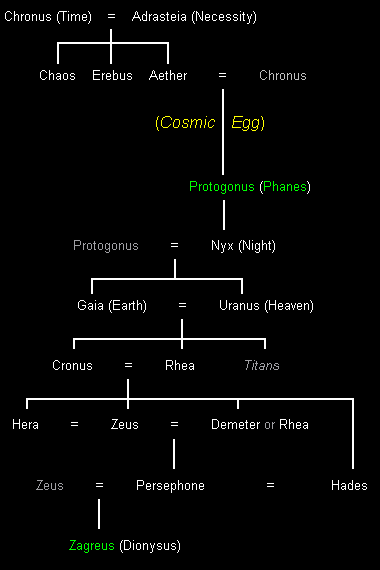

The second family tree, shown below, shows the reincarnation of Zagreus: Dionysus. Here, Dionysus or Bacchus is the son of Zeus and the mortal woman Semele, who would later become the goddess Thyone.
According to the Neoplatonic writer Proclus, Rhea became Demeter after Zeus was born. So this Demeter was in fact was Zeus' mother, not his sister as most of the Greek myths say. Zeus raped his mother Rhea or Demeter, and she became the mother of Persephone.
See the Orphic Creation.
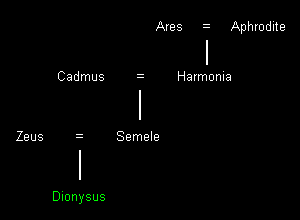

By Jimmy Joe
